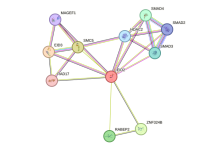Qailulah (Midday Napping)
Does taking a Qailulah (Midday Napping) increase a person’s lifespan? That’s exactly what happens, according to a new study. According to research, taking a Qailulah (Midday Napping) once or twice a week halves the risk of stroke and heart disease. However, researchers say that the benefits of daily nap have not been revealed.
According to Dr. Nadine Hazel, lead author of the study and a researcher at the University Of Leuven Hospital Switzerland, “In fact, we found that people who did not have heart disease before, if they take regular naps on a daily basis. I have a relatively high risk of heart disease. But when we took into account the socio-demographic data of the people involved in the research. With the lifestyle and the ‘risk factors for heart problems, these additional risks began to disappear. “
In this study, the University of Leuven selected 3,500 people (no specific criteria were set in the selection of people) and observed their heart health for more than 5 years. About three out of every five people said they did not take a nap. One in five said he took a nap once or twice a week, while another one in five said he took a nap three or more times a week.
Regular Qailulah (Midday Napping) included older overweight and smokers. In addition, observations showed that such people slept longer at night (compared to those who said they did not take a nap), while they also said they felt more drowsy during the day.
According to researchers, such people also have a higher risk of recurrent sleep apnea due to shortness of breath while sleeping at night. During five years of observation, the 155 participants in the study experienced fatal and non-fatal heart accidents, including heart attacks, strokes, and blocked arteries. And for that surgery was needed.
In the light of this study, the researchers concluded that people who take a Qailulah (Midday Napping) once or twice a week have a 48% lower risk of heart attack, stroke, and other heart problems. Other experts agree with the findings of this study on the negative effects of regular daily naps on heart health. Dr. Martha Gulati, editor-in-chief of the American College of Cardiology Patient website, says, “I am concerned that a person who needs to take a nap every day is not getting a good night’s sleep.
For someone who is taking a nap six or seven times a week, I want to ask him if he really can’t get a good night’s sleep. Are you taking a nap to make up for your lack of sleep? If so, such people need to change their lifestyle immediately. ”
How is taking a nap once or twice a week beneficial for heart health? Explaining this further, Dr. Nadine Hazel says, “Its mechanism is not so straightforward. We believe that occasional naps reduce the fatigue and stress caused by your lack of sleep at night, which has a positive effect on heart health.
A Qailulah (Midday Napping) is Good for Children’s Health
American scientists say that one hour of sleep after lunch helps children between the ages of 3 and 5 to increase their mental strength. Researchers at the University of Massachusetts Amherst, after researching 40 children, said in a brief report that the benefits of a nap in 3 to 5-year-olds continue into the next day and that one hour of sleep, early learning, and memory is crucial.
According to the results of the research, the children who took a Qailulah (Midday Napping) performed well in the shape and size test. After a nap, children’s memory improved by 10% compared to the day when children were not allowed to take a nap. Children’s mental examination during sleep in the ‘Sleep Laboratory’ revealed that there was more activity in the learning parts of the children’s brains.
According to Rebecca Spencer, the leader of the research team, the research team has for the first time presented evidence that taking a nap can help children learn and improve their mental strength. As children get older, they lose the habit of taking a nap, but younger children should be encouraged to do so,” he said.
What is Qailulah in Islam?
Moreover, Neuroscience reveals that Qailulah (Midday Napping) improves memory power, improves alertness, improve wakefulness, and performance, and recovers positive qualities of lost night sleep. Thus, Interestingly, Islam, the religion of the Muslims, advocates midday napping primarily because it was a practice preferred by Prophet Hazrat Muhammad (PBUH) almost 1430 years ago. Read More – Osteoporosis – Building Strong Bones

Product You May Interested
- Feel Emotional Freedom! Release Stress, Heal Your Heart, Master Your Mind
- 28 Day Keto Challenge
- Get Your Customs Keto Diet Plan
- A fascinating approach to wipe out anxiety disorders and cure in just weeks, to become Anxiety free, relaxed, and happy.
- Flavor Pairing Ritual Supercharges Women’s Metabolisms
- The best Keto Diet Program
- Boost Your Energy, Immune System, Sexual Function, Strength & Athletic Performance
- Find Luxury & Designer Goods, Handbags & Clothes at or Below Wholesale
- Unlock your Hip Flexors, Gives you More Strength, Better Health, and All-Day Energy.
- Cat Spraying No More – How to Stop Your Cat from Peeing Outside the Litter Box – Permanently.
- Anti-aging nutritional unexplained weight gain, stubborn belly fat, and metabolic slowdown. Reach Your Desired Weight in a Week and Stay There.
- Get All Your Healthy Superfoods In One Drink






